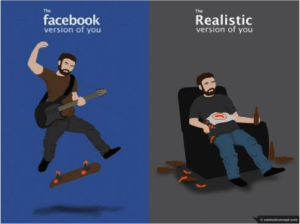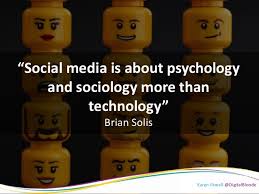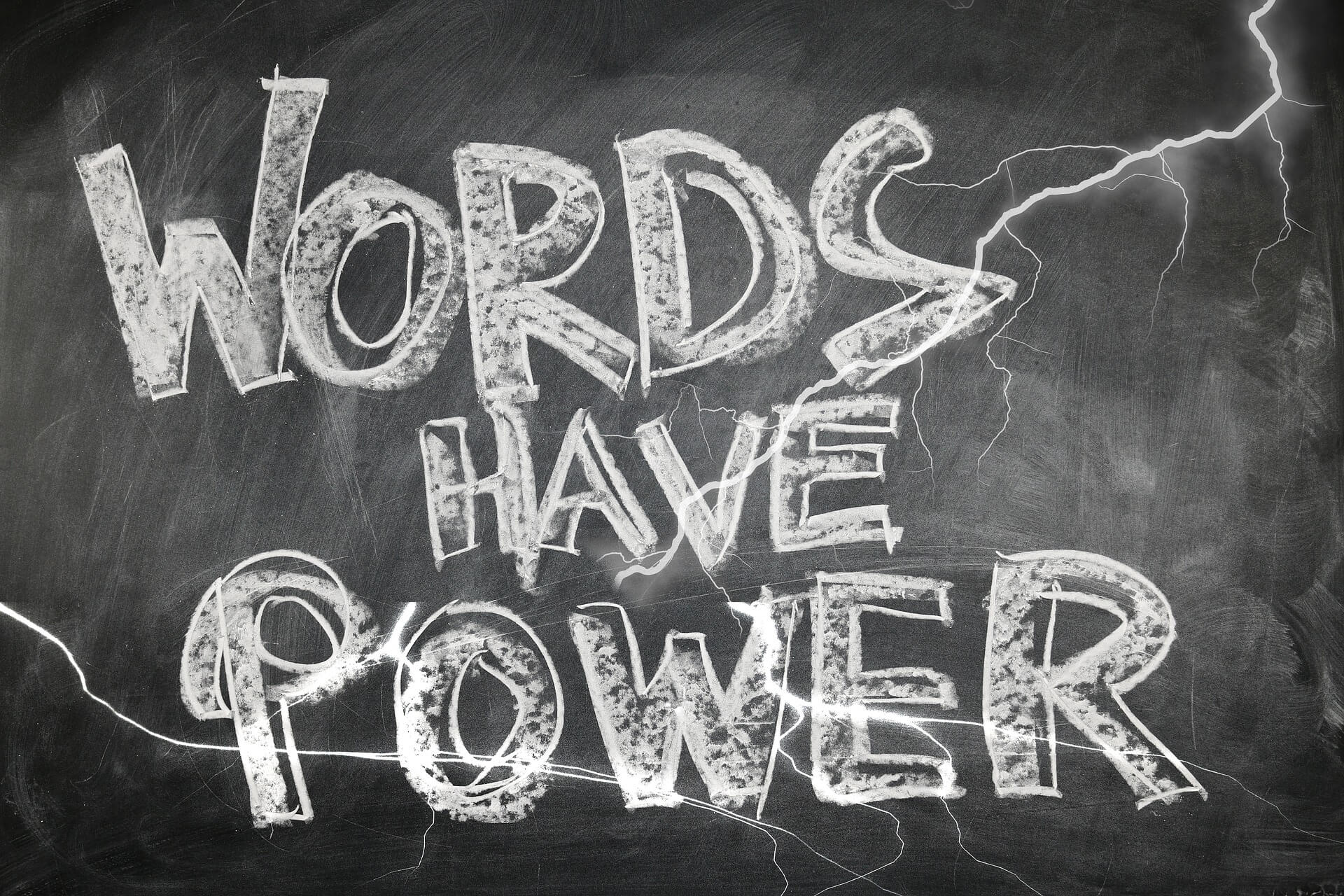Social Media: The psychological effects
Posted on February 8th, 2017
Social Media: Psychological effects
Love it or hate it, social media is here to stay (well at least for a while). The reality is that many of us are on social media, even if we may not like to admit it. Of course it’s not all bad, social media allows us to contact old friends, stay in touch with family, or access information. However, most of us will be aware that social media can have a very dark side. I’m not referring to anything deeply sinister, but traps that many of us are lured into when we enter the word of social media.
The traps of social media:
Comparing
My pet peeve with social media is that many of us believe that what we see (what others post) is actually representative of their lives. This simply is not true. We fall into the unhelpful thinking style of ‘comparing’ or ‘magnification and minimisation’. So this is where we magnify another’s positive attributes and minimise our own. For example, we tend to imagine that everyone else is having a great old time (best partner, best kids, everything they touch turns to gold), whereas I might struggle to get out of bed in the mornings.
 What is important to realise is that what you see on social media is the ‘cream of the crop’. Most people don’t tell you that right before that beautiful family picture was taken they were all screaming at each other. People are posting the best pictures of themselves, their families or experiences. This is not what their lives look like on the whole. Believing that other’s social media is actually representative of their lives can affect our own self esteem. Many will ask “what is wrong with me that I don’t look like that all the time or why can’t my life be perfect?” This ‘perfect life’ we see on social media is often referred to as our digital identity, which is the ‘me’ I want everyone to see, not necessarily who I really am. We tend to put forth the ‘the ideal self’, which is the self we aspire to be.
What is important to realise is that what you see on social media is the ‘cream of the crop’. Most people don’t tell you that right before that beautiful family picture was taken they were all screaming at each other. People are posting the best pictures of themselves, their families or experiences. This is not what their lives look like on the whole. Believing that other’s social media is actually representative of their lives can affect our own self esteem. Many will ask “what is wrong with me that I don’t look like that all the time or why can’t my life be perfect?” This ‘perfect life’ we see on social media is often referred to as our digital identity, which is the ‘me’ I want everyone to see, not necessarily who I really am. We tend to put forth the ‘the ideal self’, which is the self we aspire to be.
Addiction/Overuse
Research is showing that more and more people are falling into social media overuse or addiction (However, this is not yet included in the Diagnostic and Statistical Manual of Mental Health Disorders – 5th ed [DSM-V]). Although I’m not sure if I would term it an ‘addiction’, this phenomenon is affecting both adults and children. How difficult is it for you to put down your phone and walk away? How many times has your partner or child bid for your attention for you to say ‘yeah in a minute’, but that minute never comes.
Even as far back as 1998 (Young & Rodgers) researchers found a link between internet usage and depression. This is not new. However, due to the prolific use of the internet in our everyday lives this issue is becoming even more significant. People are becoming genuinely dependent on their devices and it’s having a negative effect on us psychologically. It is suspected that the main reason we become so hooked is because of the rush of pleasant chemicals in our brains (which some suggest are as addictive as any drug) and the positive reinforcement that we get when we get a message or a ‘like’ from friends. In addition, many people are using social media to get a sense of worth and to reassure themselves that they are valued. This praise and reassurance also has its own addictive properties.
Avoidance and escape
Many people are using social media as an escape or avoidance tactic. If we have work, relationship stresses, situations or issues we don’t want to deal with then it becomes very easy to get lost in the world of social media. However, as psychologists we know that avoidance is a very unhelpful coping style that only contributes to higher levels of anxiety and distress. What are you avoiding by keeping yourself stuck in the world of social media?
Relationships
When we are caught up in the world of social media, we tend to start ignoring other things in our lives. Let’s be honest keeping up to date with all this social media can very time consuming. So what is it that we are sacrificing or taking time away from? In many situations it is our relationships with our partners and children that suffer.
Fear of Missing Out (FOMO)
The Australian Psychological Society (APS) released a ‘Stress and Wellbeing in Australia report’, which included a section on social media and the fear of missing out. Fear of missing out or FoMO is “a pervasive apprehension that others might be having rewarding experiences from which one is absent”. This fear is characterised by “a desire to stay continually connected with what others are doing”.
In addition, the APS study found that on average adults were spending at least 2 hours a day and adolescents were spending 2.7 hours a day engaging with social media. It also of found 56 per cent of teens were heavy social media users, connecting more than five times per day, with 24 per cent being constantly connected. Sixty per cent felt brain ‘burnout’ from constant connectivity of social media.
What can we do?
A good place to start is to implement some guidelines for yourself and your children. Sit down and create some rules around social media use. It’s also good to have regular social media free days or limit social media to certain hours of the day.
Ask yourself what purpose is social media serving in my life? Am I avoiding? Is it filling a void? Why am I willing to dedicate so much time to this activity? Could I be using this time in a more helpful way?
Take time out allow yourself time to breath, relax and ponder. We don’t need to fill every moment of our days with activities or entertainment.
Written by Judy Travis
Australian Psychological Society (APS) (2015). Stress and Well-being in Australia 2011-2015. http://www.psychology.org.au/psychologyweek/survey/
Young, K.S., & Rodgers, R.C. (1998). The relationship between depression and internet addiction. Cyber Psychology & Behavior, 1 (1), 25-28.



